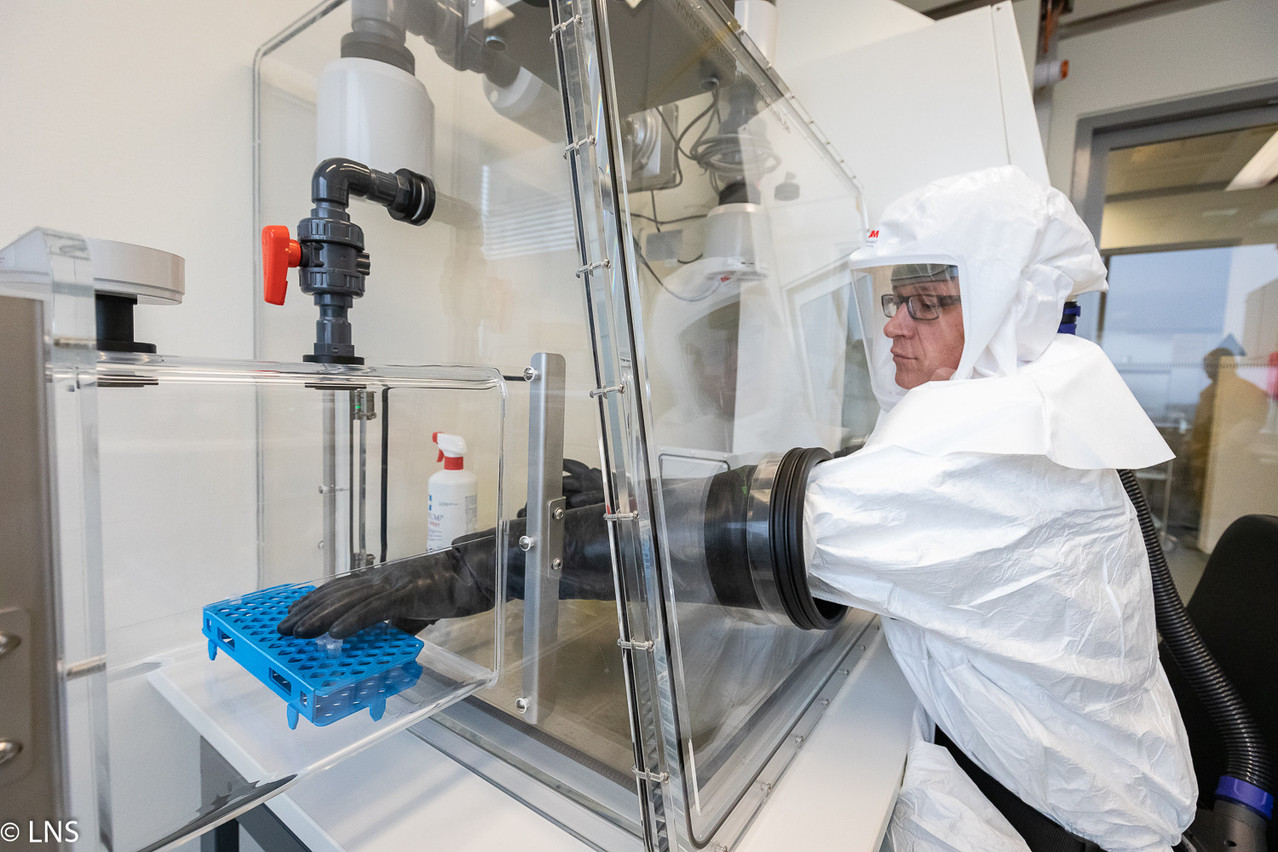In 2023, the Laboratoire national de santé (LNS) says it experienced a “year of transformation.” The past year has been marked by a number of events and successes, said its annual . Among the most notable was the accreditation of its sequencing service for pathogens of certain viruses in February 2023. Also on the scientific front, the LNS in April 2023 launched an accreditation plan for its laboratory services, with the aim of having more than 50% of its laboratory activity accredited. Its National Pathology Centre has also been recognised as a full-spectrum training centre by the Ärztekammer Saarland.
Among its developments, the LNS has also made human biological surveillance an area of expertise, with its own doctor-biologist. Its national genetics centre has also carried out the first locally produced exome sequencing, and last October it implemented an in-house method of complete genomic testing for solid tumours.
Some figures
During 2023, the LNS carried out 93,587 medical biology analyses. This is far from covering all the analyses carried out by all the LNS departments. 5,475 environmental microbiology analyses were also carried out, as well as 36,816 antimicrobial resistance tests, 74,676 immuno-histochemical analyses and 10,529 constitutional genetics analyses.
launched at the end of 2022 has also had positive results. Diseases caused or aggravated by the impact of the environment on health are on the increase. This discipline therefore has the potential to grow. The University of Luxembourg, for example, plans to train its future doctors in these issues, with implementation in the specialisation of general practitioners.
“Throughout this year of change, our institution has rethought its operational approach and launched transformation efforts, led by the governance of our board of directors,” said the members of the executive board in the report. In February 2023, COO and Safaâ Moujahid the chief financial and administrative officer. Since the , Dentzer and Moujahid have taken the reins on an interim basis.
Also internally, the LNS signed its first collective agreement in April. The organisation has 397 employees of 24 nationalities, the majority of whom are women (66%).
Redefining the organisation
The medical biology department was reorganised in 2023. It carries out a wide range of analyses (more than a thousand). The organisation needed to be redesigned for greater efficiency. The department has been divided into two services: a neonatal screening and inborn errors of metabolism service (NBSIEM), and a pharmacology and hormonology service.
“This new structure also offers medical biologists opportunities to develop their leadership skills, and recognises their daily efforts in managing the entire workflow, from the pre-analytical phase through to results and coordination of activities,” said department head Patricia Borde, adding that the reorganisation will also provide greater visibility. The department plans to strengthen its teams, with the addition of a new scientist to support the expansion of newborn screening.
Through the LNS, Luxembourg also participates in the European Partnership for Risk Assessment of Chemical Substances. Finally, in 2023 the LNS presented its findings on the surveillance of carbapenem-resistant bacteria.
In financial terms, the LNS achieved a turnover of €49.42m, up on 2022 (€46.82m). Profit for the 2023 financial year was €7.1m.
One of the challenges that remains is to reduce waiting times for anatomopathology analyses, which are used in particular to confirm a cancer diagnosis. In the first quarter of this year, the waiting time for results was between three and eight weeks. That’s a long time for a patient waiting for a diagnosis. Another challenge: finding a new director to succeed Toungouz Névessignsky, who resigned just a few weeks after his appointment at the beginning of the year.
This article was originally published in .
